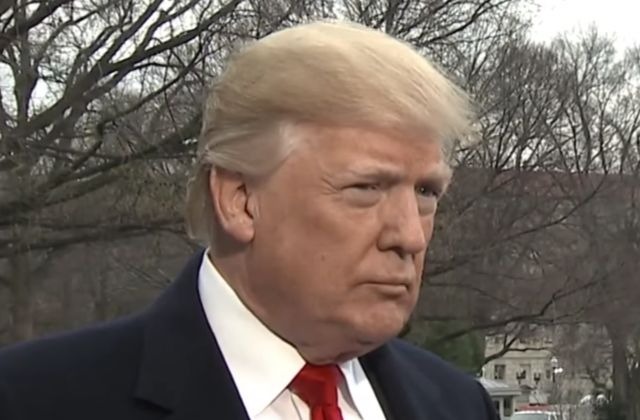 The U.S. Department of Justice just argued for the second time this month that when the President of the United States tweets something, he isn’t necessarily speaking for them or basing his statements on actual knowledge of government activity. In fact, the DOJ said he might just be tweeting stuff he sees in news reports.
The U.S. Department of Justice just argued for the second time this month that when the President of the United States tweets something, he isn’t necessarily speaking for them or basing his statements on actual knowledge of government activity. In fact, the DOJ said he might just be tweeting stuff he sees in news reports.
The latest case, brought by the James Madison Project (JMP) and USA Today’s Brad Heath against the DOJ, is in regards to a Freedom of Information Act (FOIA) request they made for records related to FISA warrants for the surveillance of President Donald Trump, his campaign, and his transition team. The DOJ refused to confirm or deny the existence of such records, but the plaintiffs say that President Trump’s own tweets have already confirmed them. The DOJ said that’s just not true.
If this sounds awfully familiar, it should. Earlier this month, in a separate FOIA lawsuit that JMP filed against the DOJ, the DOJ claimed that President Trump’s tweet saying that the FBI couldn’t verify the infamous Russia dossier was not a confirmation that the FBI had reached a final determination about the dossier one way or another. When JMP filed their FOIA request, the DOJ used what’s known as a Glomar response, which is basically an official “no comment,” meant for when acknowledging whether certain records do or don’t exist would itself be a disclosure of sensitive information. JMP argued that when Trump’s tweet prevented the DOJ from using that response.
The court agreed with the DOJ in that case, granting their motion for summary judgment. The court said, “the President’s statements may very well be based on media reports or his own personal knowledge, or could simply be viewed as political statements intended to counter media accounts about the Russia investigation, rather than assertions of pure fact.”
Now the DOJ is arguing that the same logic should apply to the current case.
The plaintiffs claims that Trump’s tweets, made after he took office, about wire tapping and FISA warrants against him and his team, reveal knowledge of DOJ actions, but once again, the DOJ says that’s not true.
Basically, they’re saying just because Trump acts like he has knowledge of something, that doesn’t mean he actually has that knowledge, or that his statements are based on such knowledge. He could be basing his tweets solely on Fox News reports, and not any official government information.
If the D.C. District’s opinion in the previous case is any indication, the DOJ could very well win this one too. JMP, however, contends that this case is different. They claim that Trump has tweeted information that, if true, would prove the existence of certain records.
JMP’s argument, however, acknowledges that Trump’s comments appear to be based on media reports. The court could very well find again that if the tweets were based on media reports and not information he received from the DOJ, that they’re not official recognition of any records. The court could also find that the tweets aren’t necessarily based on truth, but are merely “political statements.”
[Image via CNN screengrab]